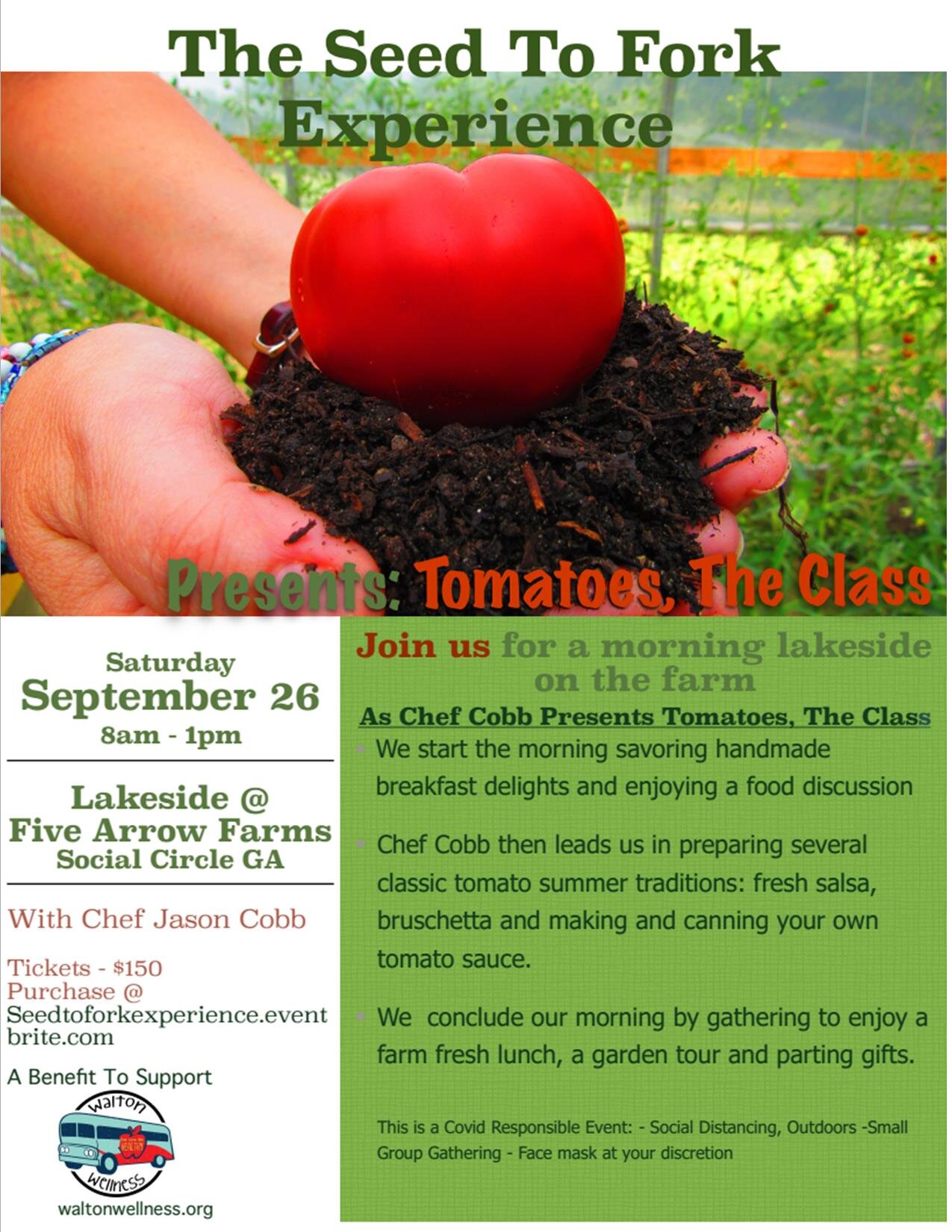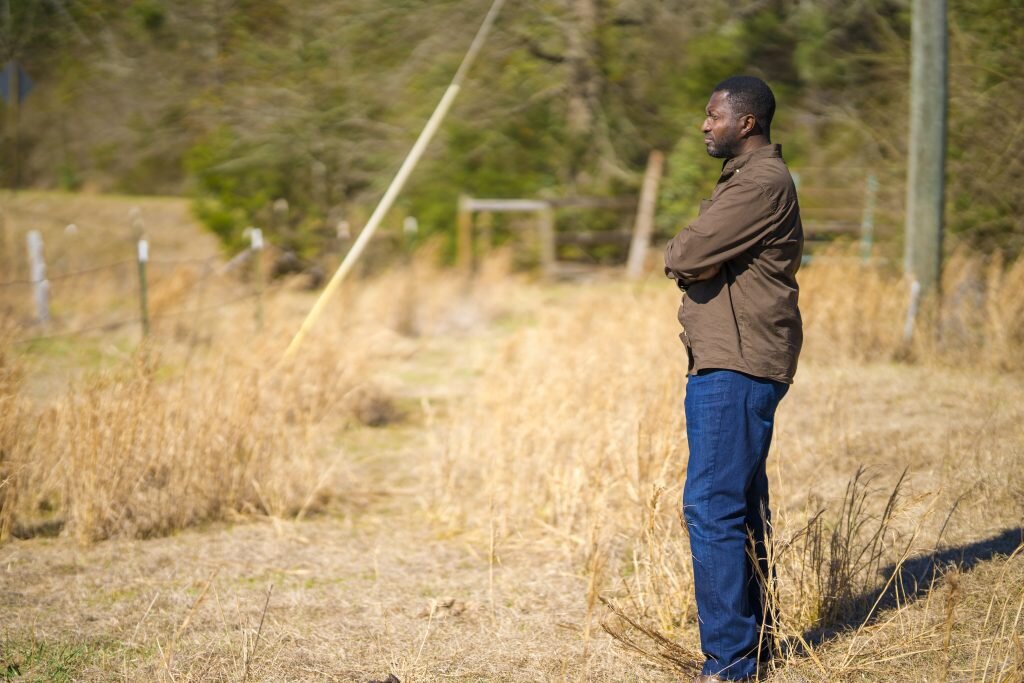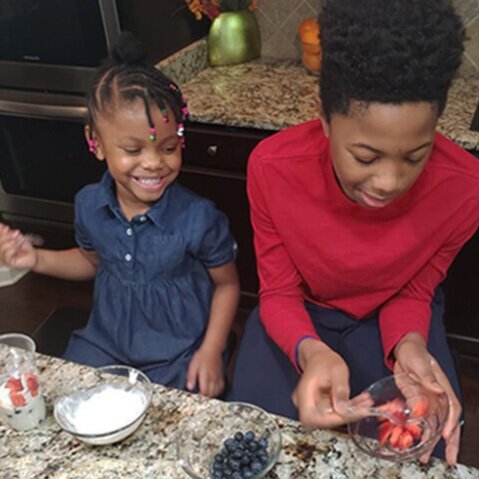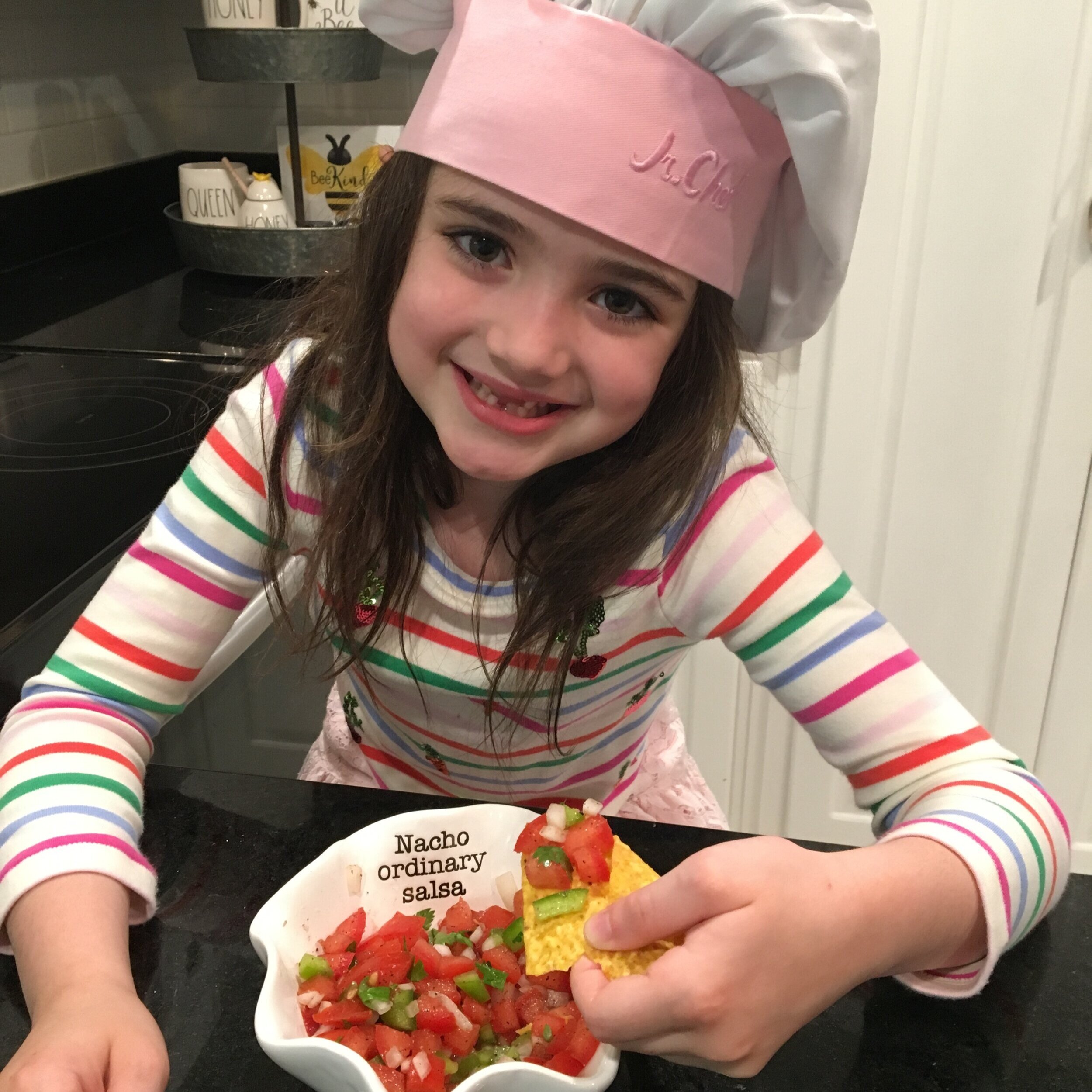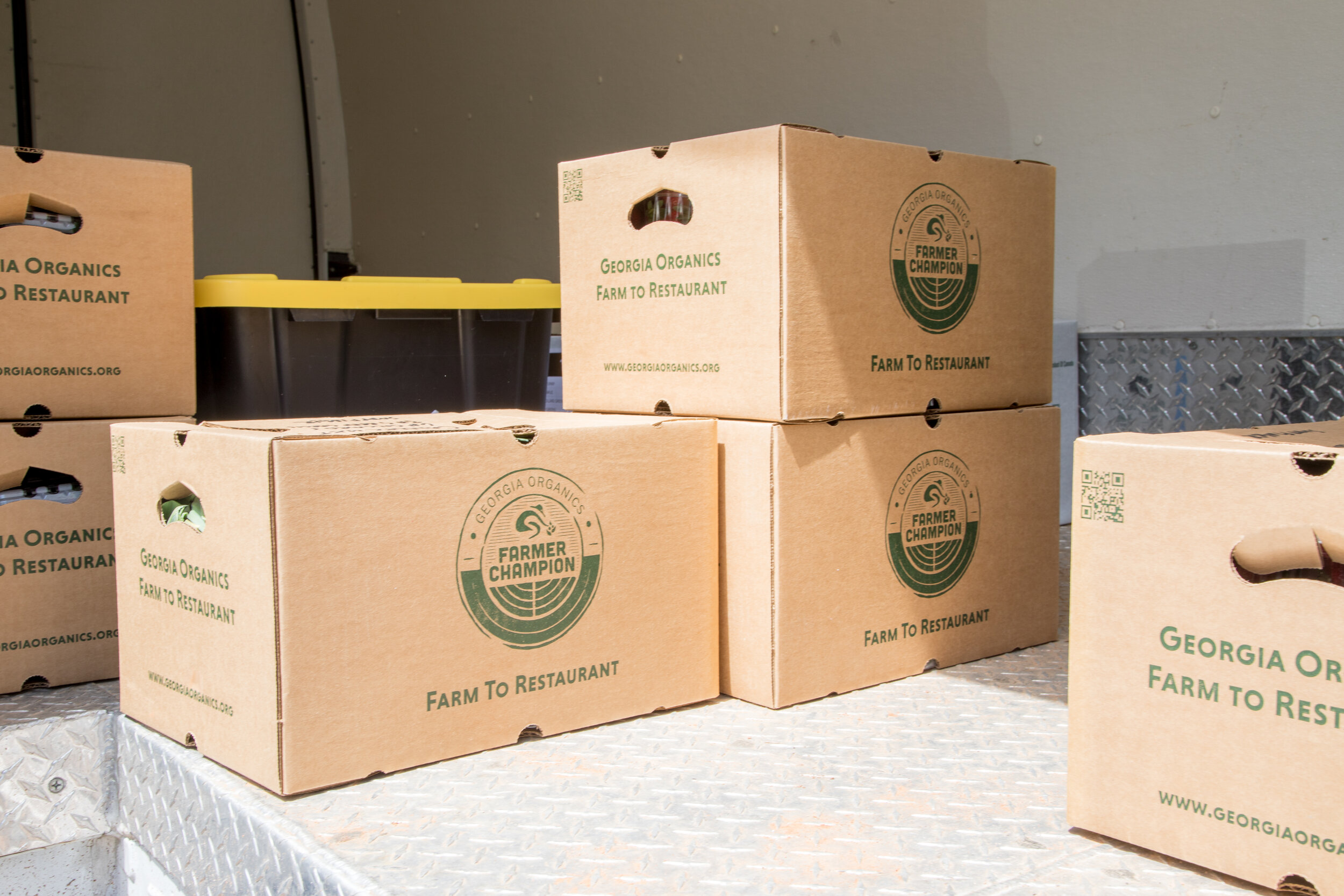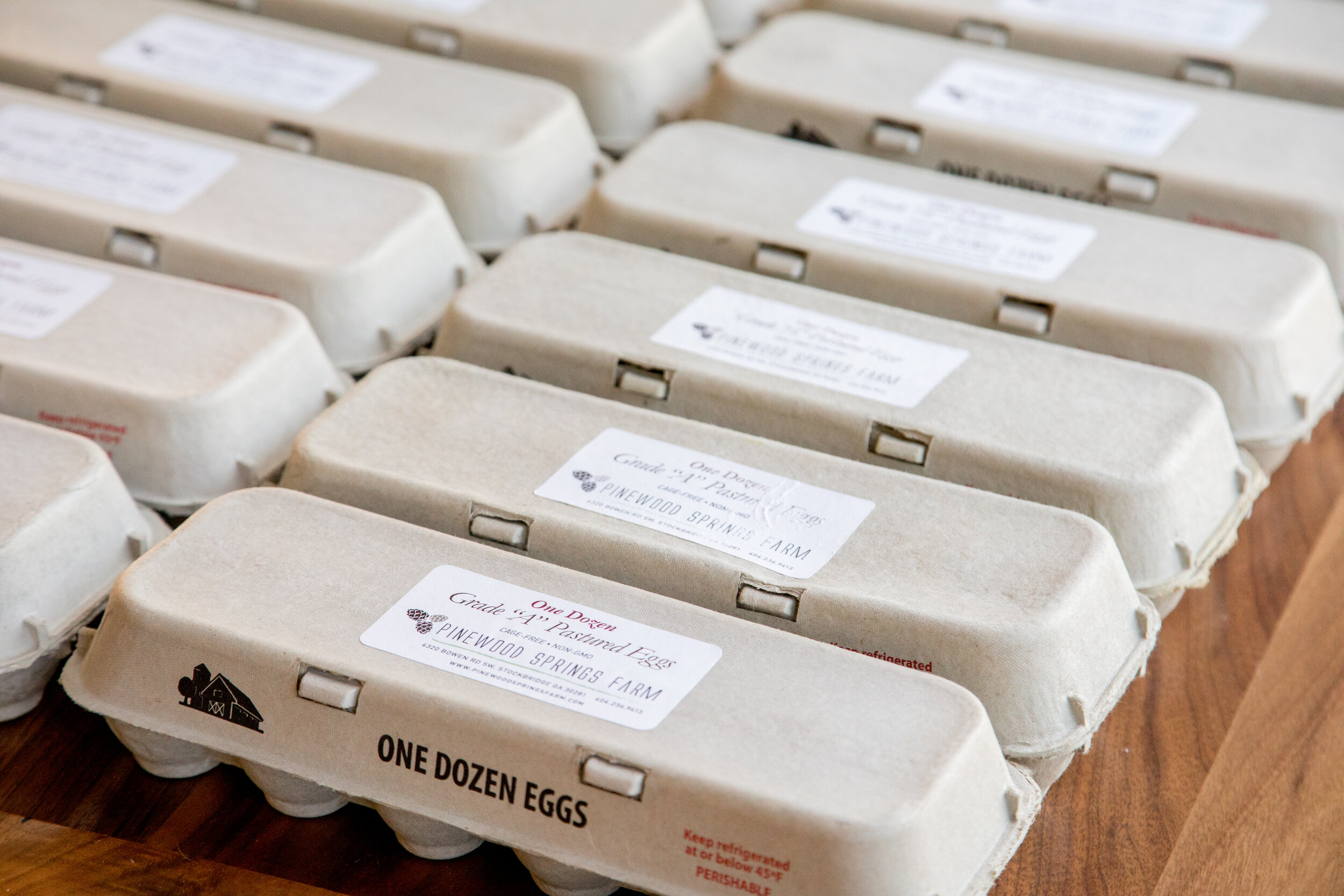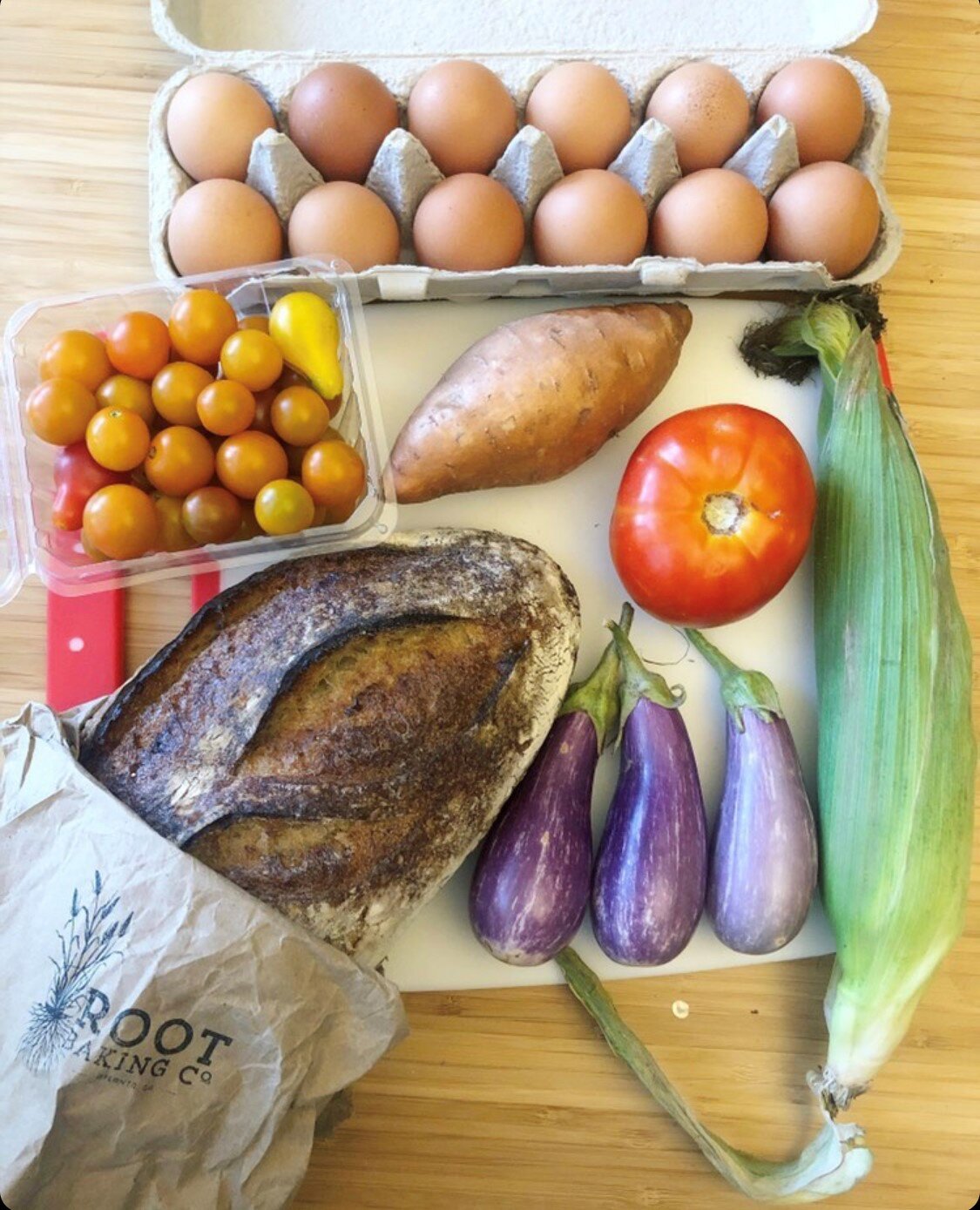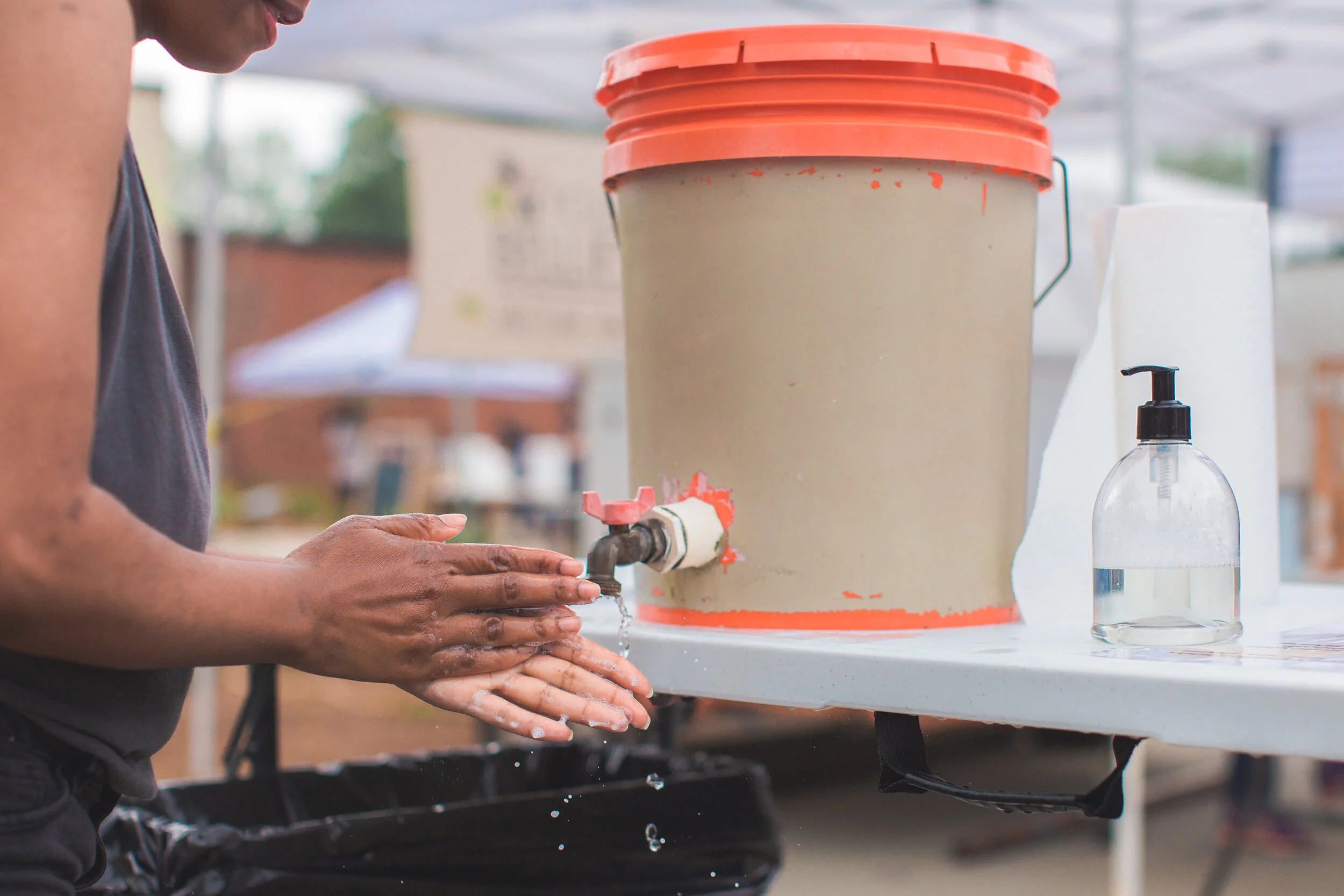By Caroline Croland
The COVID-19 pandemic shines a blinding spotlight on the indispensable role that schools play in our society. An ecosystem of dedicated individuals, from teachers to faculty to administrators keeps our youth learning, growing, and fed.
Georgia Organics would like to take a moment to spotlight a school nutrition manager who is committed to integrating fresh, nutritionally dense, delicious local food from Georgia farms, and their very own school garden, into the cafeteria and classrooms. This dedicated individual leads the day-to-day operations which keeps Furlow Charter School children nourished throughout the school year.
Today we are honoring Larry Jackson, School Nutrition Manager of Furlow Charter School.
Larry Jackson, School Nutrition Manager of Furlow Charter School
“Larry Jackson is one of the hardest working, most loved and lovable school nutrition managers in the state of Georgia...maybe the country,” says Kimberly Della Donna, Georgia Organics Farm to School Director, whose eyes light up when I mention his name.
Della Donna first began working with Jackson in 2017, right after our Farm to School team added the Platinum level to our Golden Radish awards.
“He told me that Sumter County would be the first to win the Platinum award that year. They did, and they've won the Platinum Award each year since. Larry has played a critical role on the Furlow Charter School Farm to School team, made up of school and nutrition leadership, teachers, and community members. The team works together to create a comprehensive farm to school program where every grade has an outdoor learning garden,” Della Donna recalls.
Additionally, the school nutrition team recently added a FoodCorps Service member, who helps teach gardening lessons. An innovative fundraiser with a local coffee roaster and Georgia Organics member Cafe Campesino, "School Grounds" provides financial support to the program.
The National School Nutrition Association, recognizing Jackson’s exceptional efforts, awarded him Southeast Region School Nutrition Manager of the Year Award in 2018.
“Larry is an ambassador of goodwill and school food in his community, ensuring that all his students eat well, learns about their food and nutrition, and enjoy themselves. I'm privileged to know and work with him and I'm inspired by his passion for community service,” says Della Donna.
We sat down with Larry via Zoom to talk to him about his life, his work, the effects of the pandemic, and his passion for school nutrition.
Larry, tell us a little about yourself, your background, and your role as a school nutrition manager.
I've been school nutrition now for seven years. Before that, I was the Assistant Director of Food Service at the local hospital here for 35 years. I have almost 47 years in foodservice. School nutation is completely different but I love it. I wish I'd have spent my 35 years here as school nutrition manager, I absolutely love and wouldn’t go anywhere else. It's just a pleasure being on this mission for school nutrition.
I'm married with seven grandchildren. The smallest one just turned six—she’s my baby. I've been married for 35 years to an RN. She's head of the dialysis clinic here in Americus. They inspire me every day in doing this work.
COVID-19 has upended business as usual for schools with the closures earlier this year and the questions around re-opening schools this fall. How has the school nutrition program been operating through these closures? Were you still able to reach students?
Yes. I was a part of Sumter County’s summer feeding program, which operated throughout the school closures in the spring. We had three schools participating in the program. Some of those kids do not have enough to eat. You do have to get up early in the morning but I didn't mind! When I saw those smiles on those kids' faces, it was a powerful experience.
I made sure they got all the needed components in there because I'm a nut about making sure they get their fruit and their vegetables. This is something my grandson always notices. He says, "You must work at a school cafeteria, Grandad." I say, "Yes I do."
Nothing beats in-person learning, of course. We're starting some distance learning and some in classrooms. It fills my heart when I get to see students and they say, "Hey Mr. Larry. I can't wait to eat!" That’s what brings joy to me when little kids recognize you and know that you're helping feed them. Granted, I don't do it by myself but that just amazes me when they still know your name after six, seven months we've been out. It just blows me away, I love it.
What inspires you about this work?
Developing relationships with my scholars (we call our students scholars) and parents. My years in hospital work cemented my belief that food is medicine, so I love seeing kids develop in their relationship to food.
I love doing activities that help kids get excited about food—even if it’s just putting a bit of food coloring in some applesauce and watching them get excited about the color change. I love hearing their feedback—if they like something or if they don’t. If they don’t like it, we're going to see what we can do about it. We want these kids to eat, not just look at food. I always say, “feed your mouth, not the trashcan!”
I do what we call table touch. I go out there and sit down with those students, sit down with a class, and taste food with them. Or I sit there and ask them questions. I love to go out and mingle with them and see what their thoughts are.
I'll talk to the parents as they are driving up, picking up their kids to pick up or go to school. I go out there to the parents and say, "Excuse me. I'm the manager of the cafeteria. I'd just like to know if you have any problems, have any questions you want to ask me." And if they tell me my child doesn't like this or like that. I tell them, “well let me see what I can do.” So I like to be transparent as much as I can.
I am inspired by the feedback I get as well. They dedicated this year's yearbook to me, which that's been a rare occasion that a cafeteria worker, it’s usually it'll be for teachers. I never, in my wildest dreams, thought that would happen. I said, "Oh my God." They say a man ain't supposed to cry but I was a crying man.
Do you have any guidance or words of advice for parents or fellow educators on how to connect with students?
I like to tell people about my personal experience being a type 2 diabetic because that is what taught me about eating right. Eating right simply makes you feel better. I love sharing my journey with people.
I always connect with my scholars and parents and ask them to reach out to me directly and talk about what they are eating at home. I go to PTA meetings, school board meetings, and parent meetings. I can ensure that they eat a good school meal here but want to ensure that they are taken care of once they get home.
Can you talk a bit about your experience of being an advocate for Farm to School programs in Georgia? How has Georgia Organics impacted your work?
Georgia Organics always has so many tools that you can use. I never get too old to learn anything. I have enjoyed going to your annual Conference & Expo. Every time I come home from one I can’t wait to share with my team, "This is what I learned at Georgia Organics. This is why they're doing this. This is how they're doing farm-to-school."
I also love getting to connect with and talk to farmers. We have invited farmers to come to our school and our schools to give talks. I appreciate what they're doing. They're going through a lot. I appreciate what it takes to get up every morning and milk a cow. They show kids how milk doesn't just pop up in that container. There's a process to go through and those kids are always fascinated. "Okay. I see the while milk coming out there but where are the chocolate cows at?"
We also love the support we get with our gardens. It is amazing doing taste testing for the kids. They go out and do a little gardening and then whatever they plant, we bring it in there. We can't feed the whole school but we'll bring that class in and we'll cook it and let them taste it. And you'll be amazed. The Golden Radish is really, that kicked off to me the farm-to-school approach and we are so thankful for all the active learning the kids get to do out in the garden.
You can learn more about our Farm to School programs by visiting our website. Be sure to sign up for October Farm to School month for free lessons, activates, and recipes. This year’s theme is “Turnip the Volume: Can you Dig it?” and features lessons for pre-k through high school.
To learn more about Furlow Charter, visit www.furlowcharter.org/ and follow on social media at www.instagram.com/furlowcharterschoolfalcons/ and www.facebook.com/FurlowCharter/.
Caroline Croland is the Fundraising Coordinator at Georgia Organics. To learn more about Georgia Organics, visit www.georgiaorganics.org and follow us on Instagram @GeorgiaOrganics, Twitter @GeorgiaOrganics, and at www.Facebook.com/GeorgiaOrganics.













